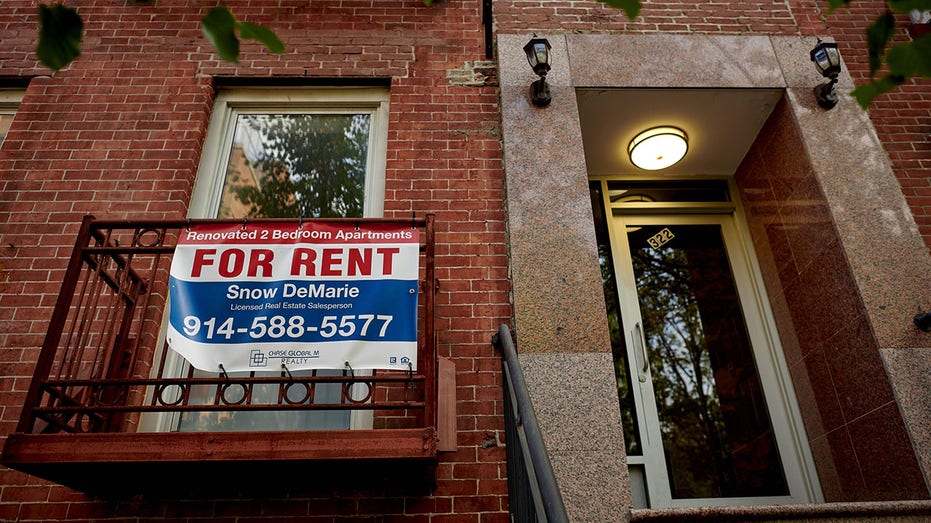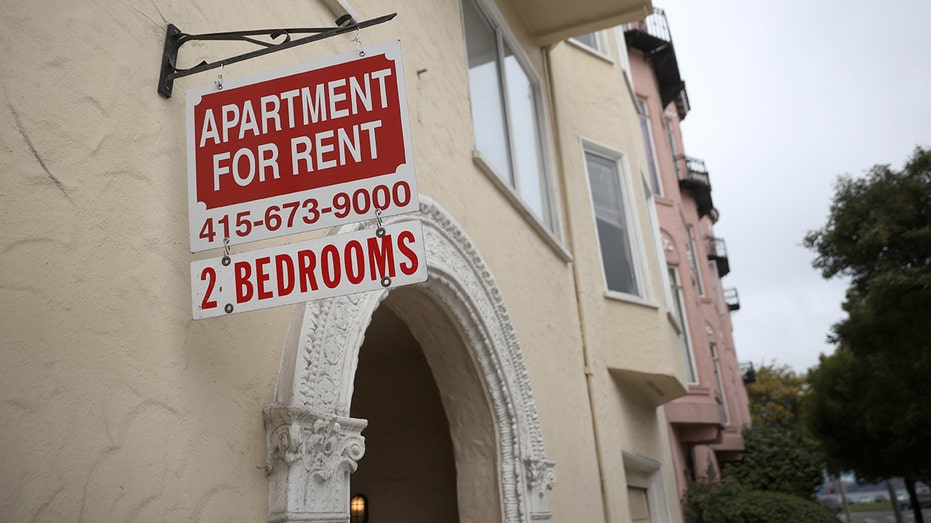Inflation hits these renters the hardest
Asking rents are 25% higher in July than they were a year ago
FOX Business Flash top headlines for September 1
Check out what's clicking on FoxBusiness.com.
Millennials and Gen Z renters are facing an even greater burden when it comes to living expenses.
According to a new Redfin report, the cost of goods and services increased 11.6% in July compared to a year ago for millennials that took on a new rental lease.
For Generation Z, the inflation rate for those signing a new lease was 11.3%, according to the data.
Both of those figures are "substantially higher" than the inflation rate of 8.5% for the U.S. population overall.
Soaring rental costs are largely responsible for driving the increases, according to the real estate brokerage. Even though rental price growth has slowed since 2021, asking rents are still up about 25% compared to pre-pandemic times.
In July, asking rents in jumped 13.5% compared to a year ago.

A "For Rent" sign outside an apartment building in the East Village neighborhood of N.Y. on Tuesday, July 12, 2022. (Gabby Jones/Bloomberg via Getty Images / Getty Images)
Although inflation is hitting everyone, younger renters are having a significantly more difficult time due to the costs of food, fuel and rent increasing, according to Redfin Senior Economist Sheharyar Bokhari.
Homeowners, although they are also hit with rising food and fuel costs, have a number on their mortgage statement that isn't increasing every month, Bokhari said.
HOUSING STARTS TUMBLE IN JULY TO NEW 17-MONTH LOW
"Combine high rental prices with student loan debt and relatively low incomes, and it’s difficult for millennials and Gen Z renters to put money into savings, retirement accounts and down-payment funds to eventually buy a house," Bokhari said. "They may also have higher interest rates on debt, which cuts further into their potential savings."

A "For Rent" sign posted in front of an apartment building on June 2, 2021 in San Francisco, Calif. (Photo by Justin Sullivan/Getty Images / Getty Images)
According to the data, the typical Gen Z has just 1.9% of their $40,953 median income left for discretionary spending after housing payments as well as food and transportation costs. That's a decrease from 7.7% in 2020.
CLICK HERE TO READ MORE ON FOX BUSINESS
Meanwhile, the typical millennial has about 26% of their income left over, a drop from 30% in 2020. Millennial typically have an income of $85,233, "more than double the typical Gen Z income," Redfin reported.





















